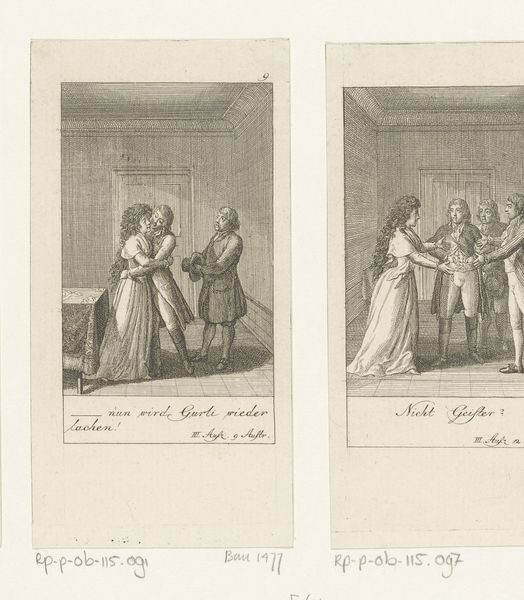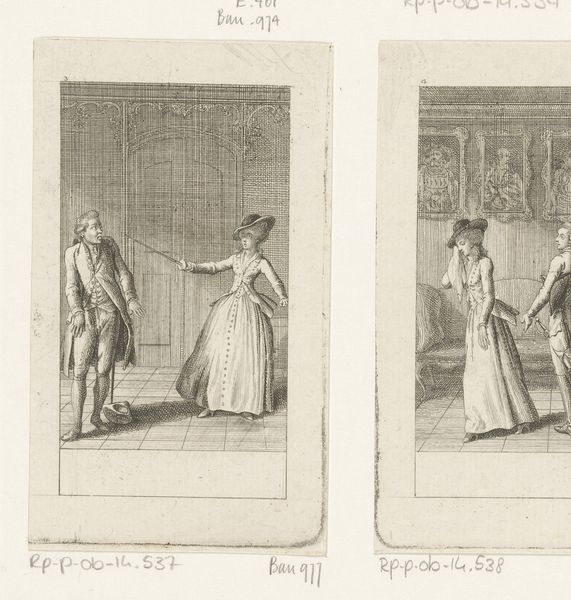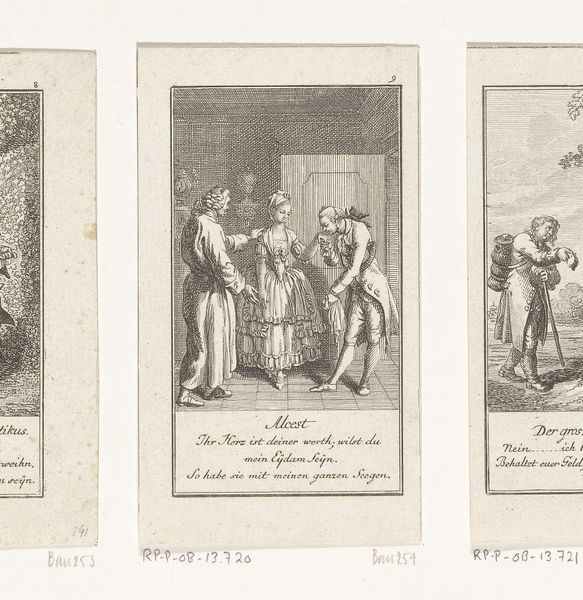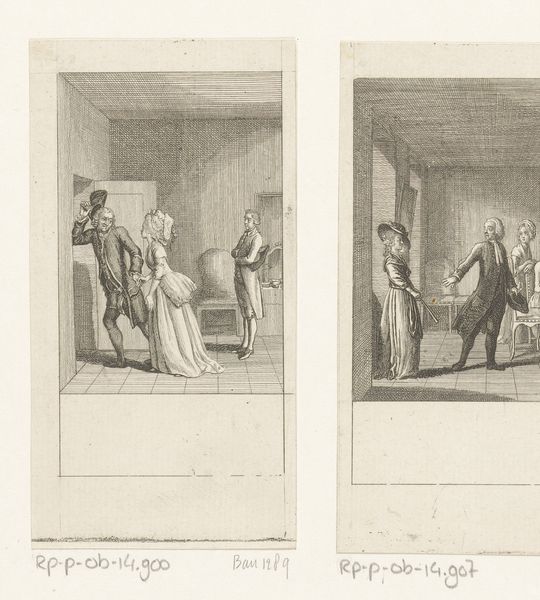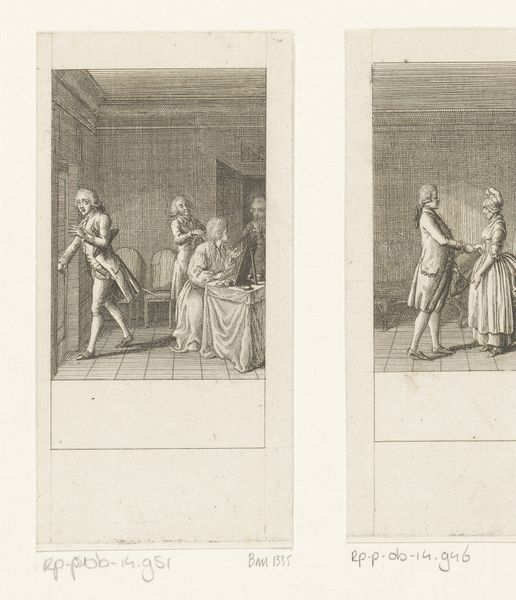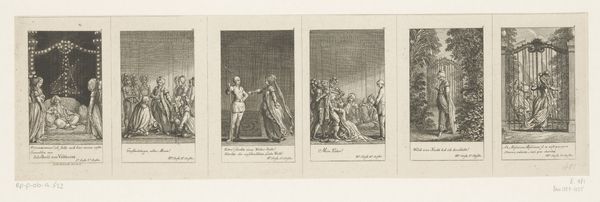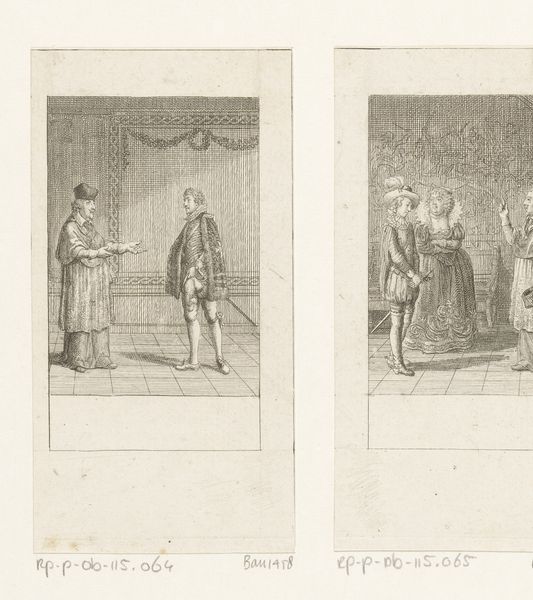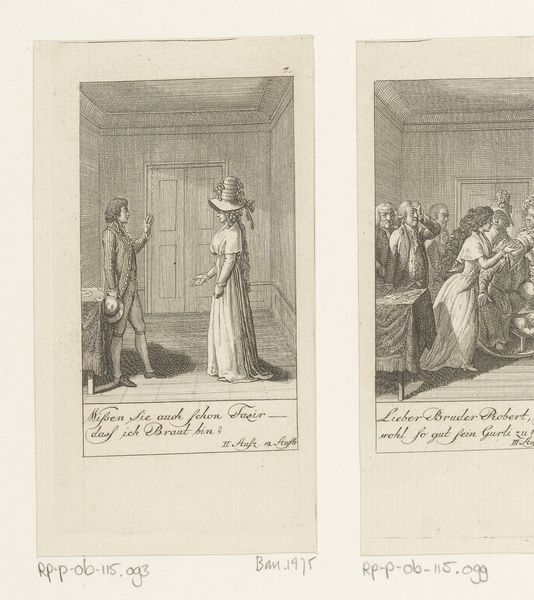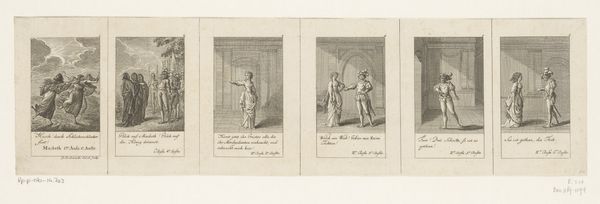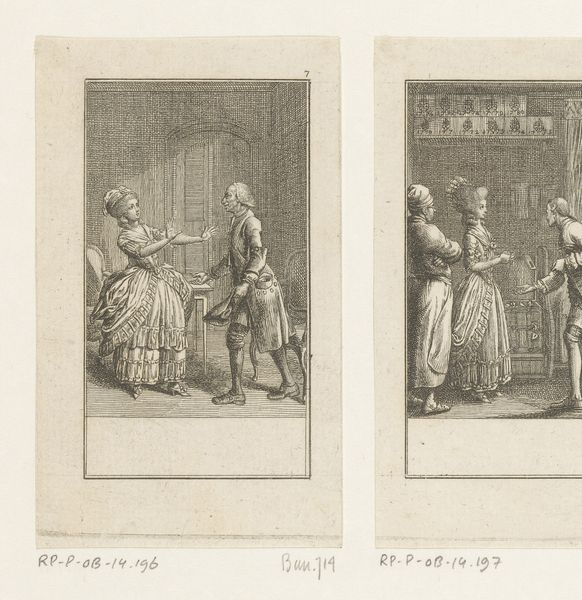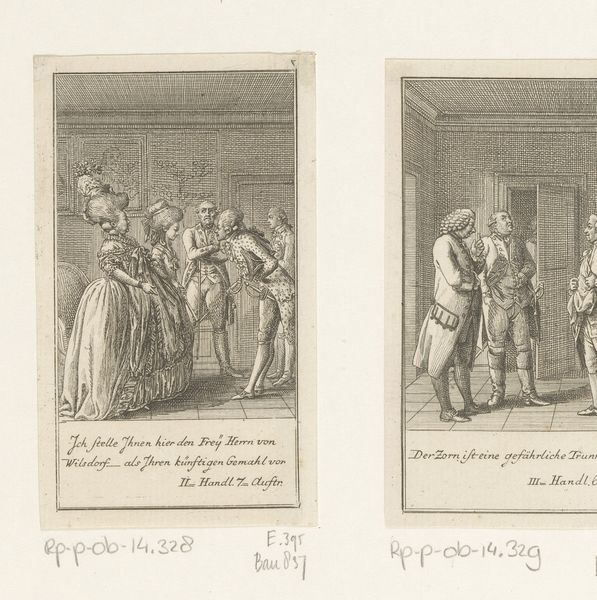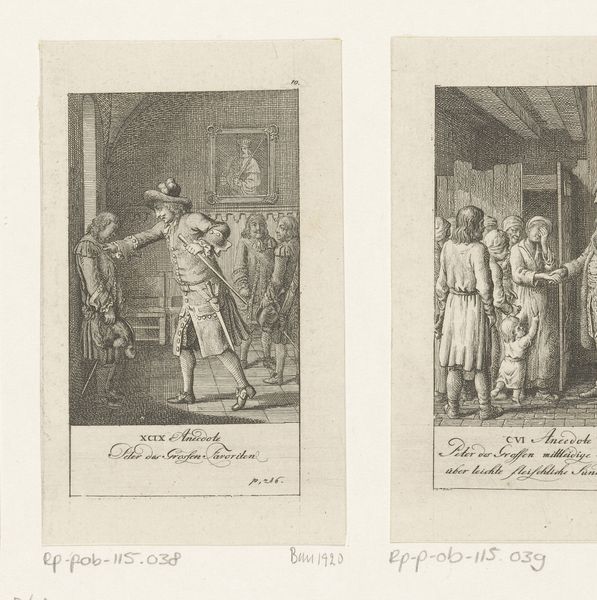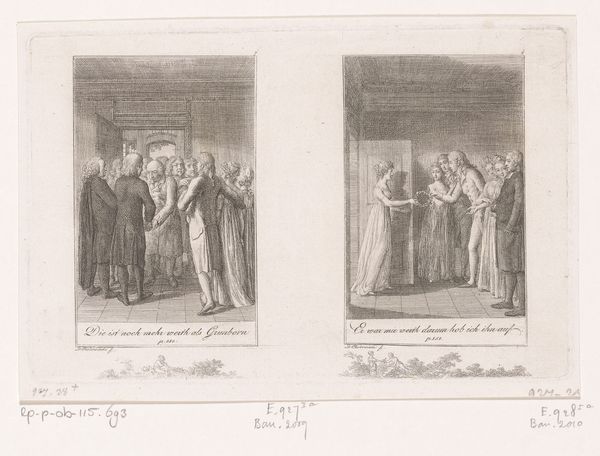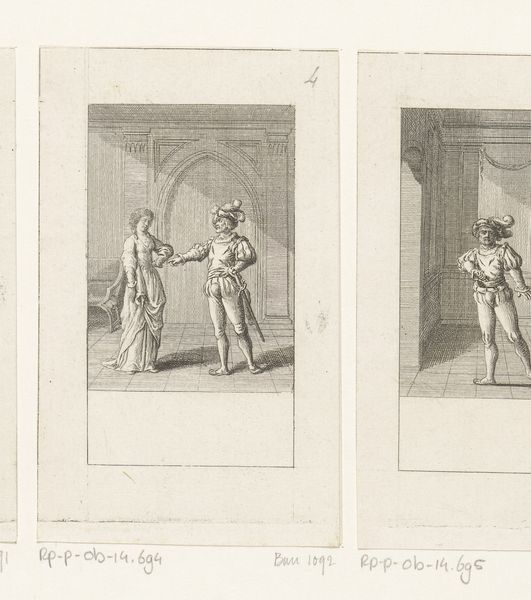
drawing, print, engraving
drawing
comic strip sketch
aged paper
light pencil work
narrative-art
pencil sketch
sketch book
figuration
personal sketchbook
sketchwork
romanticism
sketchbook drawing
pencil work
genre-painting
storyboard and sketchbook work
engraving
Dimensions: height 118 mm, width 62 mm
Copyright: Rijks Museum: Open Domain
Curator: Here we have an engraving by Daniel Nikolaus Chodowiecki, titled "Kaberdar koopt de manchetknopen van de jongeman", made around 1790. It's currently held in the Rijksmuseum collection. Editor: Right off the bat, I’m struck by how…orderly it is. Two separate scenes meticulously rendered with a lightness of touch – almost like a theatrical stage set for a miniature drama. There's something very staged about it all, despite being a humble print. Curator: Chodowiecki was a master of capturing social mores in print. The paired scenes, accompanied by text, suggests a narrative, perhaps part of a larger series, much like an early graphic novel. The scenes capture something very common in 18th-century moral prints – stories that guide and explain conduct and beliefs to a largely illiterate audience through easily understood visual language. Editor: Ah, that makes sense! I was wondering about the juxtaposition. I thought it might represent before and after or different possible outcomes to a single negotiation. Given your reading of the imagery, what do the cuff links represent within this moral code? Curator: Cufflinks here, and more broadly clothing, and accessories can be interpreted as more than just adornment. In this story, these could easily symbolize status, maturity, or a changing role in society, and they are not offered, but are rather purchased under contract or obligation. The "kindliche Liebe", childish love, might hint that the young man here gains experience only via his monetary trade. Editor: Yes, I suppose accessories gain new and nuanced significance depending on the historical period, it gives me plenty to ponder. What I enjoy here are the clear and precise gestures of each figure and how that speaks across centuries of shared expression. It invites my curiosity, even if the moral codes are antiquated now. Curator: Agreed. These precise prints offered more than entertainment; they preserved cultural memory. As we study prints such as this, we start to understand more about this slice of society and its own particular set of cultural continuity and anxieties. Editor: Well, I'm leaving this viewing with some newfound respect for cufflinks and a craving for a time-travel adventure to an 18th-century stage production!
Comments
No comments
Be the first to comment and join the conversation on the ultimate creative platform.
